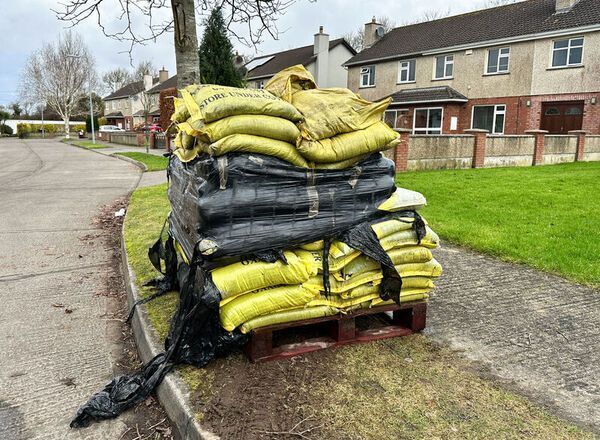[caption id="attachment_69067" align="aligncenter" width="600" caption="A poster for John Ford's "The Informer."]
The word "informer" has a great deal of negative connotations in Ireland, especially when the word is used in the context of informing on Irish rebels who were waging war on the British government.
Such an informer was considered too despicable to go on living and he or she was disposed of without mercy.
When ex IRA leader Denis Donaldson was gunned down in a Northwest Donegal cottage in April 2005 there was little outrage among residents of the area because the British government had exposed Donaldson as an informer who had been on their payroll for years.
Donaldson had been hiding out in an isolated cottage for a number of weeks before he was killed and his identity was known to many of the people he came in contact with. But he had been shunned by those who knew him as if he had leprosy, or some other disease.
Very few people in the area were IRA supporters at this particular time so their rejection of Donaldson had nothing to do with the years of IRA confrontation with the British in the North. The root of the rejection by ordinary residents was the conviction that a person who
betrays his own comrades, no matter what cause they are fighting for, and does it for financial gain, is a low-life of the worst type and nobody wanted to associate with them.
In view of this they had no sympathy for Donaldson and no words of condemnation for his executioners. The Irish police who investigated the murder got no information from local people when they blanketed the area with detectives who tried to gather clues about who might have
been responsible for Donaldson's death.
They were unable to track down anyone who knew him, or who had talked to him, or even anyone who said they had seen him.
This writer was in Northwest Donegal when the murder took place, on vacation in an area ten miles from the murder site. A week after the murder, my wife and I were curious about the isolated area described on TV, so we decided to take a trip to the location to see what the cottage looked like.
The road to the Donaldson cottage was a narrow unpaved lane that wound up into the mountains beyond a hamlet named Doochary. The road was deserted and the various dwellings in the area were widely scattered. We eventually came upon the Donaldson cottage, which I recognized from photos in the newspapers, sitting on its own, a short distance from the road.
Other than this cottage, the immediate area was empty of other dwellings. We sat in the car and silently stared at the cottage. Suddenly, the silence was broken by the sound of a very loud engine, which turned out to be a helicopter which had appeared overhead and was hovering directly over us.
We sat in the car, expecting the helicopter to land and for police to come out and question us, but as the minutes passed we decided to move on, with the helicopter still keeping an eye on us.
A half mile down the road we came upon a police road block. The police looked us over carefully and then waved us on. The helicopter then flew away and we were left wondering what that was all about.
Early last year, two men from the Rosses area were arrested and questioned about the Donaldson murder but were released because the gardai had no evidence that they had committed a crime. But it was rumored that one of them knew who the killers were, and the other one had played some part in the killing.
But the authorities could not prove it.
Both men were well known and respected and there was no negative reaction to them when they were released. In typical Donegal fashion the subject of their arrest was not even brought up with them by any of their acquaintances.
An outsider could not be blamed for thinking that the inhabitants of Northwest Donegal are in the habit of condoning murder, but this could not be further from the truth.
There is very little crime in Northwest Donegal, and murder is totally unacceptable - unless it involves an informer. In that case the rules, or laws, do not apply.
On Sunday, November 13 last, in another Northwest Donegal community, several hundred people gathered beside a large Celtic Cross to honor the memory of Gweedore-born Patrick O'Donnell who was hanged in England in December 1883 for killing an informer named James Carey. At the commemoration ceremony, O'Donnell was described as a great patriot "who died for Ireland."
Among those who took part in the ceremony was Eamon O'Cuiv, the deputy leader of the Fianna Fáil party and grandson of Eamon de Valera, the former president and leader of Fianna Fáil. O'Cuiv joined with other speakers to give an emotional tribute to O'Donnell.
What did O'Donnell do to merit this elaborate tribute for disposing of an informer, a tribute not granted to the killers of Donaldson?
Patrick O'Donnell killed James Carey, one of the leaders of the Irish National Invincibles, a Fenian offshoot, who had organized and carried out the murder of Thomas Henry Burke, the Permanent Undersecretary of Ireland, and Lord Frederick Cavendish, the Chief Secretary of Ireland, on May 6, 1882, in Phoenix Park, Dublin.
When the police found out who had organized the murders, Carey turned states evidence and testified against his comrades. Five of Carey's accomplices went to the gallows, and Carey and his family were given a new name and a safe passage to South Africa on board the steamer Melrose.
O'Donnell was on the same ship and he shot Carey once in the neck and twice in the back.
O'Donnell was therefore not only responsible for the execution of Carey, he could also have been charged with being an accessory to the murder of Burke and Cavendish, who were stabbed to death with a butcher knife by a member of the Invincibles.
One may ask what O'Cuiv was doing down in Donegal, 200 miles from his Dublin base, honoring the memory of the Donegal man who "died for Ireland." Is this leading figure in Fianna Fáil a great admirer of a hit man who disposed of an informer as well as British officials who dared to rule Ireland in days gone by? Or was there some other reason for his presence?
A possible other reason is the fact that Fianna Fáil took a bad beating in the last general election with much of it being meted out by Sinn Féin. Sinn Fein's Pearse Doherty won the Donegal seat vacated by Pat Gallagher, who went on to be a European MP, and now Doherty, who is a rising star in Sinn Féin, presides over a new headquarters for Sinn Féin in Gweedore, a short distance from the Celtic Cross honoring O'Donnell.
So, O'Cuiv may have decided that part of a strategy to win back the voters who deserted his party would be attending the commemoration for the Invincible. Perhaps the message he wanted to send was that Fianna Fáil hates informers just as much as Sinn Féin does, ergo, we are the real republican party.
That might work if Donegal voters deserted Fianna fáil because they thought they were no longer staunch republicans. But this was hardly the case. Pearse Doherty won because the voters were fed up with the leadership provided by Fianna Fáil and they wanted a new, young, face in the Dáil.
The animosity towards informers remains widespread in Ireland, but it may not be wise for elected officials to express this animosity so openly.
Mr. O'Cuiv, if his Donegal visit is anything to go by, does not seem to quite understand this.








